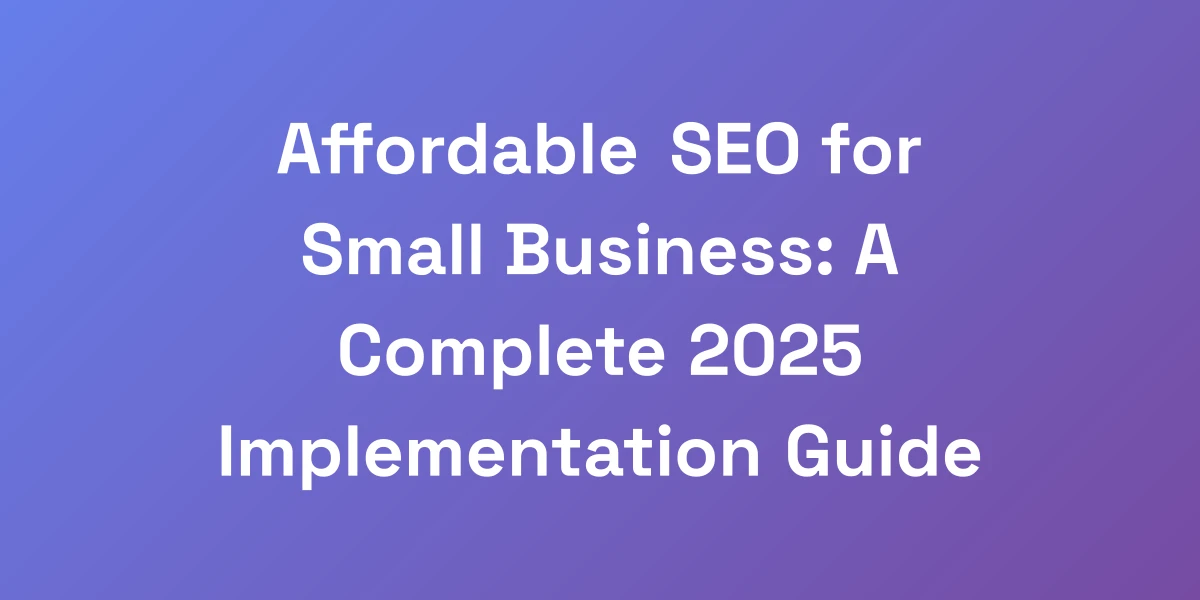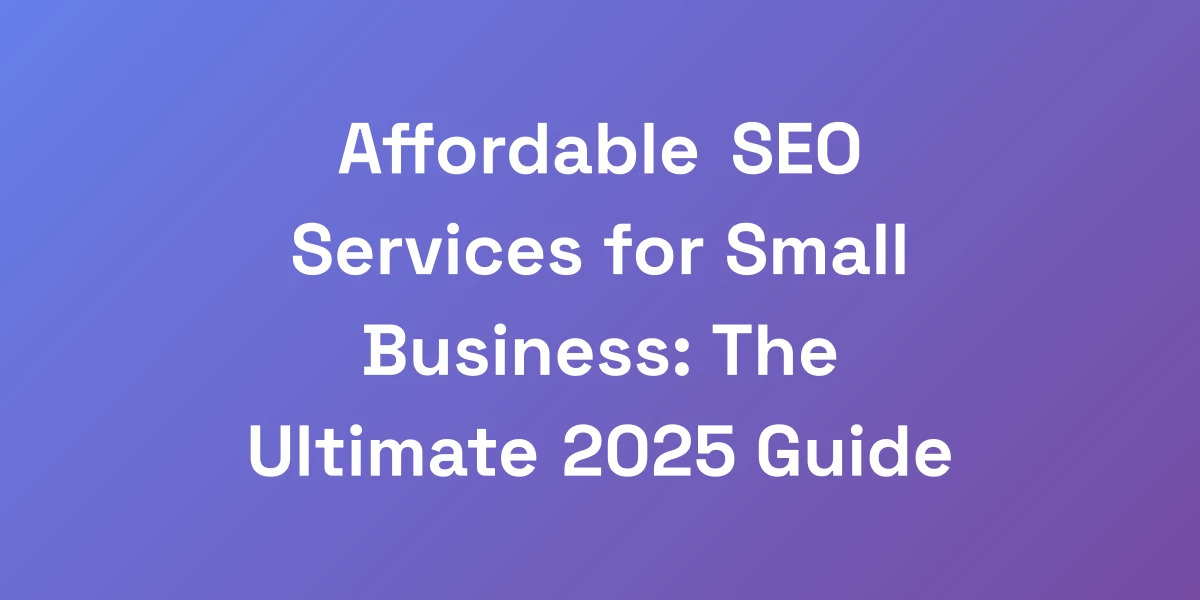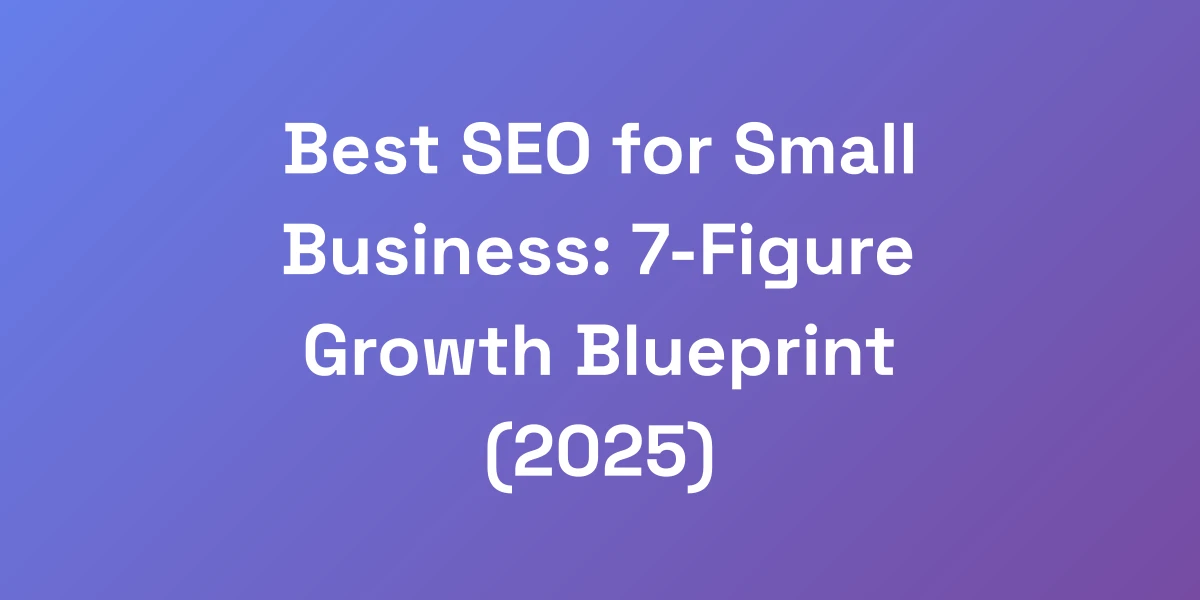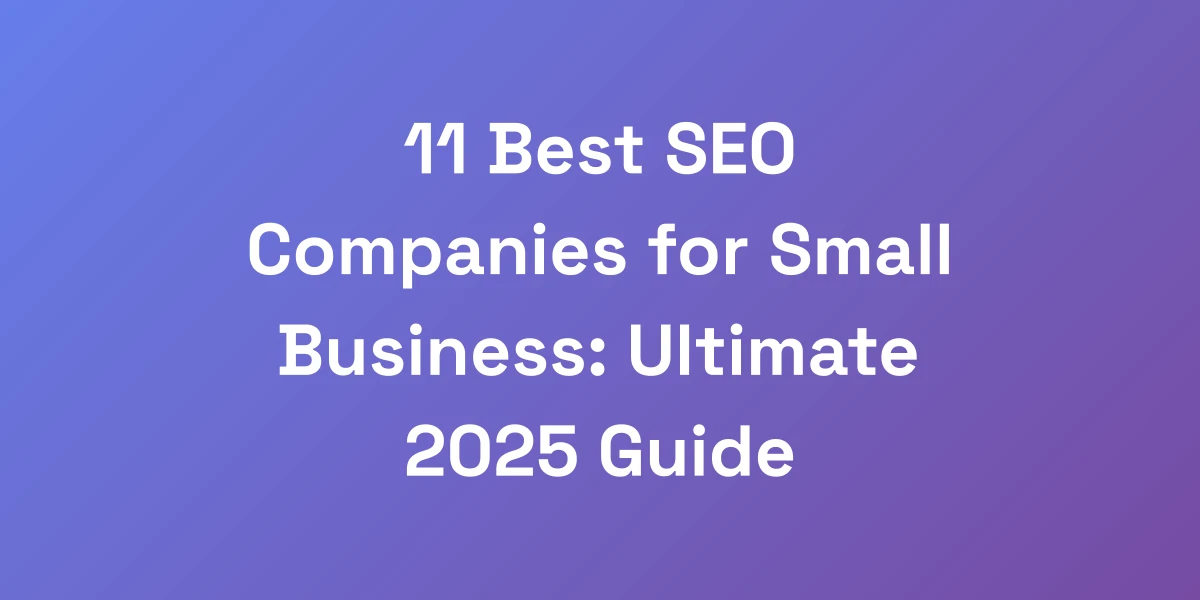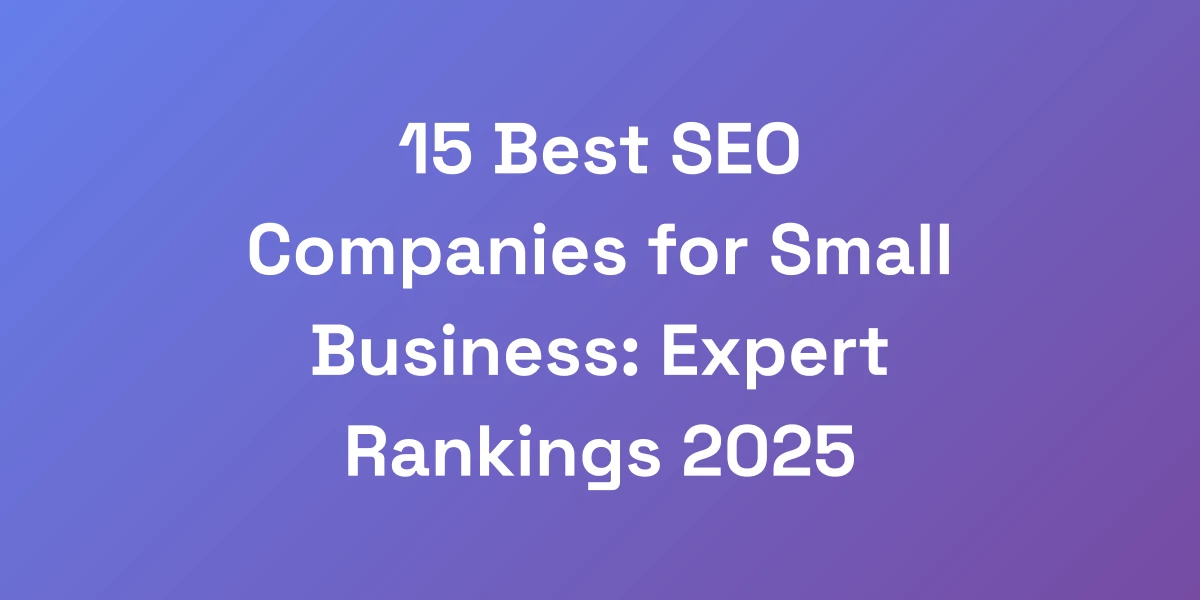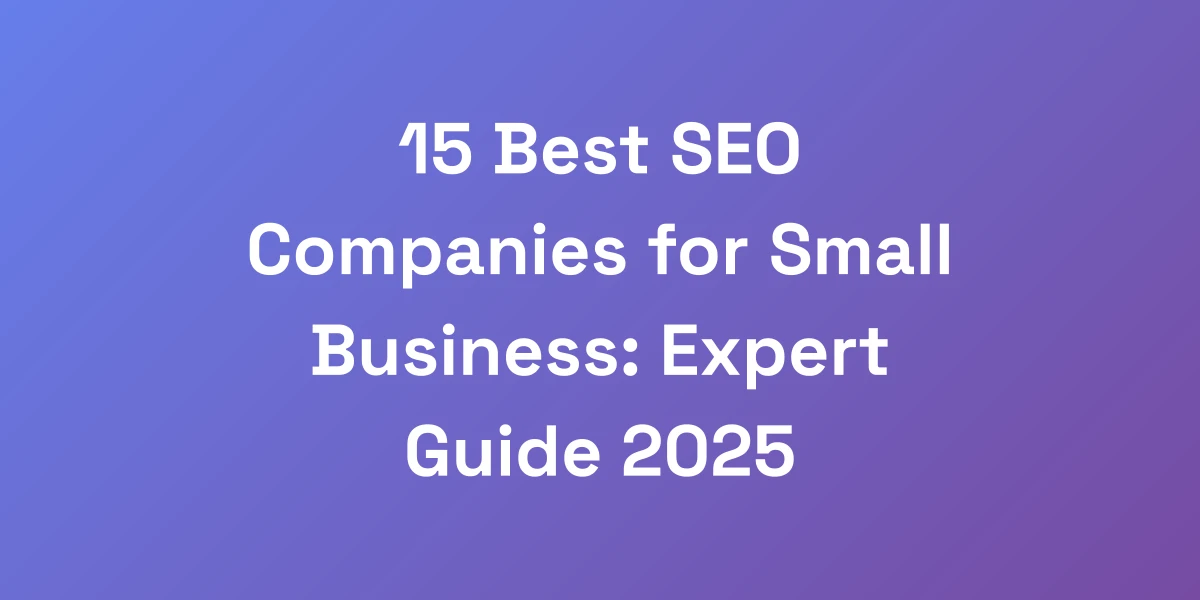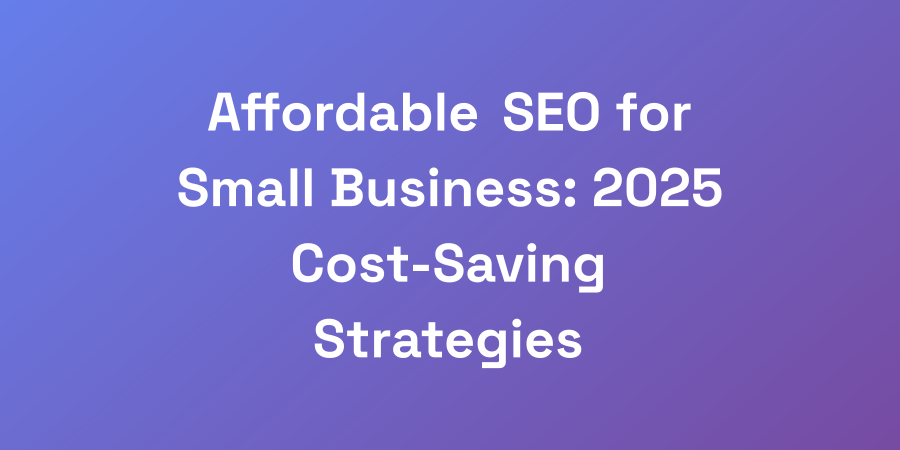
Affordable SEO for Small Business: 2025 Cost-Saving Strategies
Feb 1, 2025 | By zishansami102@gmail.com
Here’s the deal. Most small businesses are getting crushed by the SEO game because they think it’s about finding the cheapest deal. But listen closely—it’s not about how much you spend, it’s about how you spend it. SEO, when done right, is like planting a money tree. Every dollar you put in should multiply over time. But to get there, you need to know the real cost of SEO, learn some killer DIY strategies, and understand how to maximize ROI without burning a hole in your pocket.
This article is your blueprint for doing just that. We’re diving into the true cost of SEO in 2024 so you can avoid hidden fees and misleading offers. Then, we’ll hit you with DIY strategies that actually work—no snake oil here. We’ll cover how to get the biggest bang for your buck, choose the right SEO partner, and craft a long-term strategy that grows alongside your business. By the end, you’ll have a clear action plan to implement affordable SEO that delivers results. Ready? Let’s go.
Understanding the True Cost of SEO in 2024
Listen up. I’m about to share something that most SEO agencies won’t tell you. The real cost of SEO isn’t just about monthly retainers—it’s about ROI and scalability. I’ve helped countless businesses scale from 6 to 7 figures, and here’s the truth: affordable SEO isn’t about finding the cheapest service;
It’s about maximizing every dollar spent. When done right, SEO becomes an investment that pays for itself multiple times over. Let’s break down what you actually need versus what agencies try to sell you.
Breaking Down SEO Pricing Models
SEO pricing models can be a minefield for small businesses. The most common ones are hourly rates, monthly retainers, and project-based pricing. But what do they really mean for your bottom line?
- Hourly Rates: Typically range from $100 to $150 per hour. This model works if you need specific, one-time tasks like an SEO audit.
- Monthly Retainers: Usually between $1000 to $2000 per month. Ideal for ongoing SEO needs, but make sure the services included align with your goals.
- Project-Based: This is for those who need help with a specific project, like a website overhaul. Costs vary widely, so get detailed proposals.
Understanding these models helps you choose the best fit for your needs without overspending.
What’s Considered “Affordable” in Today’s Market
In today’s market, what does “affordable” really mean for SEO? It’s less about the price tag and more about the value delivered. An affordable service should offer:
- Clear Deliverables: Know exactly what you’re getting for your money.
- Measurable Outcomes: Look for services that promise specific results, like increased traffic or conversions.
- Scalable Solutions: Choose services that can grow with your business without skyrocketing costs.
Focus on these aspects to ensure you’re not just cutting costs, but also maximizing value.
Hidden Costs to Watch Out For
SEO services often come with hidden costs that can eat into your budget. Watch out for:
- Content Creation Fees: Many agencies charge extra for content beyond a certain limit.
- Link Building Costs: Some include this in their package, while others charge separately.
- Setup Fees: Initial setup costs can be a surprise if not discussed upfront.
Always ask for a detailed breakdown to avoid nasty surprises down the line.
ROI Calculations for Small Business SEO
Calculating the ROI of your SEO efforts is crucial. Use this formula:
ROI = (SEO Revenue – SEO Costs) / SEO Costs.
Let’s break it down.
Suppose your SEO revenue is $200,000, and your costs are $40,000. Your ROI would be calculated as
(($200,000 - $40,000) / $40,000 = 4).
That’s a 400% ROI, meaning every dollar spent brings back $4. To achieve this, track your conversions and their monetary values meticulously.
Red Flags in Low-Cost SEO Services
Choosing a low-cost provider can seem tempting, but here are red flags to watch for:
- Guarantees of Instant Results: SEO is a long-term game, and no one can promise overnight success.
- Lack of Transparency: If an agency can’t explain their methods, run.
- No Case Studies: Reliable agencies should have a portfolio of proven success stories.
Avoid these pitfalls to ensure your investment is secure.
DIY SEO Strategies That Actually Work
Stop throwing money at agencies before you understand this: 80% of essential SEO tasks can be done in-house with the right knowledge. I’ve seen businesses waste thousands on services they could’ve handled themselves. Here’s the brutal truth: most small businesses don’t need complex SEO packages. What you need is a strategic approach focused on high-impact activities that directly affect your bottom line. I’m going to show you exactly what moves the needle and what’s just fluff.
Essential SEO Tools Under $100/Month
You don’t need expensive tools to get started. Here are essential SEO tools that are budget-friendly:
- Google Search Console: Free and crucial for monitoring your site’s presence in Google search results.
- SEMrush: Offers a basic plan for keyword research and competitor analysis. Check out more about SEO ROI.
- AutoSEO: Offers complete SEO automation for your blog from keyword research to AI content creation, and to internal linking, generating featured images etc, all under $100. Crazy value offered..
- Ubersuggest: Low-cost tool for keyword tracking and SEO audits.
These tools cover most of your SEO needs without breaking the bank.
Quick-Win Optimization Techniques
Start with quick wins to see immediate results:
- Optimize Meta Tags: Ensure titles and descriptions include your target keywords.
- Improve Page Load Speed: Use tools like GTmetrix to identify and fix slow loading issues.
- Enhance Mobile Experience: Ensure your site is responsive and fast on mobile devices.
These simple tweaks can significantly impact your site’s performance and rankings.
Content Creation on a Budget
Producing quality content doesn’t require a huge budget. Here’s how:
- Repurpose Existing Content: Turn blog posts into infographics or videos.
- Use Freelancers: Platforms like Fiverr offer affordable writing services.
- Leverage User-Generated Content: Encourage reviews and testimonials from customers.
Focus on creating content that educates and engages your audience.
Local SEO Tactics for Immediate Impact
Local SEO is a goldmine for small businesses. Implement these strategies:
- Claim Your Google My Business Listing: Ensure it’s complete and up-to-date.
- Gather Customer Reviews: Positive reviews boost credibility and local rankings.
- Use Local Keywords: Incorporate city or neighborhood names into your content.
Local SEO helps you dominate search results in your area, driving foot traffic and sales.
Technical SEO Basics Anyone Can Handle
Don’t be intimidated by technical SEO. Here are basics you can manage:
- Check for Broken Links: Use tools like Screaming Frog to find and fix them.
- Ensure Your Site is Secure: HTTPS is a ranking factor—ensure your site is secure.
- Use a Sitemap: Submit a sitemap to search engines to help them index your site.
Mastering these basics can improve your site’s visibility and performance.
Maximizing ROI with Limited SEO Budget
Here’s what separates winners from losers in the SEO game: it’s not how much you spend, it’s how strategically you allocate your resources. I’ve seen businesses with $500 budgets outperform competitors spending $5,000 monthly. The secret? Laser-focused targeting and relentless optimization of what actually works. Let me show you how to turn every dollar into measurable results using the same principles I’ve used to build multiple 8-figure businesses.
High-Impact SEO Activities Worth Investing In
Focus your limited budget on activities that offer the highest ROI:
- Keyword Research: Invest in understanding what your customers are searching for.
- Quality Content Creation: Prioritize high-value content that addresses customer pain points.
- Technical SEO Audits: Regular audits ensure your site is optimized for search engines.
These activities have a direct impact on your rankings and traffic.
Resource Allocation Strategy
Allocate resources wisely to maximize impact:
- In-House vs. Outsourcing: Determine which tasks can be handled internally and which require external expertise.
- Set Priorities: Focus on activities that offer quick wins or have long-term benefits.
- Regular Review: Assess your strategy’s effectiveness regularly and adjust as needed.
This strategic approach ensures you are getting the most from your investment.
Measuring and Tracking Success
To ensure your efforts are paying off, track key metrics:
- Organic Traffic: Monitor increases in search-driven visits.
- Conversion Rates: Evaluate how well your site converts visitors into leads or sales.
- Keyword Rankings: Track how your target keywords are performing over time.
Use these metrics to refine your strategy and improve results.
Scaling SEO Efforts Gradually
As your business grows, your SEO strategy should too:
- Expand Keyword Targeting: As you rank for initial keywords, incorporate additional terms.
- Diversify Content Types: Introduce new formats like podcasts or webinars to reach a broader audience.
- Invest in Advanced Tools: As budget allows, upgrade to premium SEO tools for deeper insights.
This incremental approach allows you to scale effectively without overshooting your budget.
Competitive Analysis on a Budget
Understanding your competition doesn’t have to be expensive:
- Use Free Tools: Google Alerts and Ubersuggest offer competitive insights without cost.
- Monitor Competitor Activity: Keep tabs on their new content, promotions, and SEO tactics.
- Identify Gaps: Look for areas where competitors are lacking and capitalize on these opportunities.
Competitive analysis helps you stay ahead in the game without hefty investments.
Choosing the Right SEO Partner
After working with hundreds of businesses, I can tell you this: picking the wrong SEO partner is like lighting money on fire. Most agencies will promise you the world for $99/month—that’s pure fantasy. What you need is a partner who understands business fundamentals and focuses on revenue-generating activities. I’m going to show you exactly how to identify agencies that deliver real value versus those selling snake oil.
Vetting SEO Agencies Effectively
When evaluating SEO agencies, consider:
- Experience and Expertise: Look for a track record in your industry.
- Transparent Processes: Agencies should clearly outline their strategies and methodologies.
- Client Testimonials: Positive reviews and case studies are indicators of reliability.
These factors help you select a partner you can trust with your SEO strategy.
Service Package Comparison Guide
Compare service packages to find the best fit:
- Cost vs. Deliverables: Ensure the services included justify the price.
- Tailored Solutions: Opt for agencies that offer customized strategies aligning with your goals.
- Flexibility: Choose packages that allow adjustments as your needs evolve.
This comparison ensures you get the most value from your agency partnership.
Contract Terms to Negotiate
When sealing the deal, pay attention to contract terms:
- Scope of Work: Clearly define what is and isn’t included.
- Reporting and Communication: Specify the frequency and type of updates you’ll receive.
- Termination Clauses: Understand the conditions under which you can exit the agreement.
Negotiating these terms upfront protects your interests and ensures accountability.
Partnership Red Flags
Be wary of agencies showing these red flags:
- Lack of Transparency: If they can’t explain their processes, they likely have something to hide.
- Unrealistic Promises: Claims of guaranteed results should be a major warning sign.
- Poor Communication: If they’re hard to reach now, imagine how it’ll be later.
Avoid these pitfalls to secure a beneficial and lasting SEO partnership.
Case Studies of Successful Partnerships
To understand what success looks like, examine case studies of businesses like yours:
- Success Metrics: Look at traffic growth, conversion rates, and revenue increases.
- Tactics Used: Identify which strategies delivered the best results and why.
- Client Feedback: Consider testimonials and reviews for additional insights.
Studying successful partnerships provides a template for achieving your own SEO goals.
Implementing a Long-Term SEO Strategy
The biggest mistake I see small businesses make? Treating SEO like a sprint when it’s really a marathon. Your competitors are playing checkers while you need to play chess. I’m talking about building a sustainable SEO foundation that compounds over time. This section will show you how to create a strategy that grows with your business, maximizing ROI at every stage while maintaining affordable costs.
Creating a 12-Month SEO Roadmap
A clear roadmap keeps your SEO efforts on track:
- Set Quarterly Goals: Break down your objectives into manageable chunks.
- Outline Key Actions: Identify the tasks and strategies needed to achieve each goal.
- Review and Adjust: Regularly assess progress and make necessary adjustments.
This structured approach ensures continuous growth and improvement in your SEO strategy.
Adapting to Algorithm Changes
Stay ahead of search engine updates with these practices:
- Stay Informed: Follow reputable SEO blogs and forums to learn about recent changes.
- Test and Adapt: Regularly test different strategies to see what works best post-update.
- Focus on Quality: Prioritize user experience and high-quality content, as these are timeless ranking factors.
Being proactive ensures your strategy remains effective despite algorithm changes.
Building Sustainable Link Profiles
Link building is crucial, but it’s about quality over quantity:
- Focus on Relevance: Secure links from sites relevant to your industry.
- Prioritize Authority: Aim for links from reputable, high-domain-authority sites.
- Engage in Guest Blogging: Offer valuable content to other sites in exchange for links.
A sustainable link profile enhances your site’s authority and keeps penalties at bay.
Content Calendar Development
A content calendar keeps your creation efforts organized:
- Plan in Advance: Schedule topics and deadlines to ensure consistent output.
- Incorporate Keywords: Ensure each piece targets specific keywords relevant to your audience.
- Include Various Formats: Diversify content types to keep your audience engaged.
This organization boosts content quality and relevance, improving engagement and rankings.
Growth Metrics and Milestones
Identify metrics that matter for tracking growth:
- Traffic Growth: Monitor the increase in organic search-driven visits.
- Engagement Rates: Metrics like time on site and bounce rate indicate content effectiveness.
- Revenue Attribution: Understand how SEO affects your bottom line through conversion tracking.
Setting milestones linked to these metrics ensures you stay focused on achieving long-term success.
Conclusion
So there you have it. We’ve unpacked the true cost of SEO and revealed DIY strategies that can save you a fortune. We’ve shown you how to maximize ROI with a limited budget, pick the right partners, and build a strategy that stands the test of time. But remember, the key takeaway here is that affordable SEO is about being smart with your resources.
Take action now. Start implementing these cost-saving strategies and watch your small business thrive in the digital arena. Engage with us by sharing your journey and any insights you’ve gained along the way—because we’re all in this together. And if you’re looking to enhance your SEO efforts, consider exploring how to automate SEO with AI for even greater efficiency.
